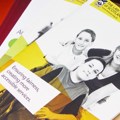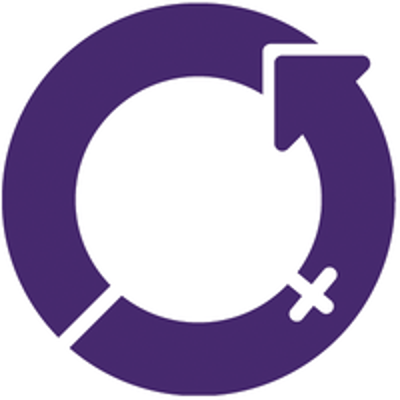International Women's Day 2020
Women in law
For International Women's Day 2020, we asked some of our members to tell us about the women in law who have inspired them during their career.
Amanda Millar, Vice President Law Society of Scotland

Helena Kennedy was the most high profile female lawyer that I paid attention to when I was at university. She was from the west of Scotland, intelligent, capable, appeared to have the courage of her convictions and wrote about things that brought challenge, awareness and a desire to think differently. To me she also showed that the previous way didn’t need to be ‘the way’. She spoke and wrote in an influential way that was easily understood. She was a go to person for representation in a crisis, a well- crafted opinion or sound-bite. When I look back I probably had an intellectual crush! What’s not to love about a woman who is articulate, strong, stands up for the often disenfranchised, the principles of our democracy, civil society and the Independence of the Rule of Law.
Today she continues to be all these things and more. I have had the privilege of meeting her through her work on the National Advisory Council for Women and Girls, with the International Bar Association work on bullying and sexual harassment in the legal profession and with the Law Society of Scotland delivering a keynote address at the 2019 Conference. She is a phenomenal human with an energy, drive and willingness to share that inspires belief that while there are horrors in the world we can make a positive difference.
Debbie Reekie, BTO Solicitors

There is a plaque on the Brooklyn Bridge which reads 'back of every great work we can find the self-sacrificing devotion of a woman.'
It was not customary for a woman to accompany a man to a construction site in the late 19th century. But, when Washington A. Roebling, the chief engineer of the Brooklyn Bridge fell ill, it was his wife, Emily who stepped in to see the world’s first steel wire suspension bridge to completion.
Emily Warren Roebling was not an engineer. But she has been described as a women of strong character and as a women who was absolutely integral to the construction of the Brooklyn Bridge.
She began as a secretary. Eventually, she became "surrogate chief engineer” and used superb diplomatic skills to manage competing parties - including the mayor of Brooklyn.
Emily wrote in 1898 "I have more brains, common sense and know-how generally than have any two engineers, civil or uncivil, and but for me the Brooklyn Bridge would never have had the name Roebling in any way connected with it."
Emily subsequently made another career for herself as a voice for women’s equality.
Aged 54 Emily went on to study law at the Women’s Law Class at New York University.
Her final essay entitled "A Wife's Disabilities" was a plea for women to be equal to men before the law. The university, at that time, did not accept women into its law school.
Emily died aged 59 in 1903. This was a time when women's equality was starting to take flight. The fullness of her legacy includes both her examples as an unofficial engineer and her willingness to speak out so that other women might be recognised in all professions. A block in Brooklyn was recently named after her and a city council member said that her legacy endures as an example of perseverance, aspiration and dedication to fighting for equality. Equality is what it is all about.
Iain Burke, Bannerman Burke

It is now nearly 29 years since I was admitted to the Roll of Solicitors as a second year trainee in 1991. When I look at our profession now compared to then, there a number of significant differences, most of which are good for the profession. One of the most significant is the recognition of the need for, and the championing of, equality and diversity in our profession. Groups like GLASS and SEMLA lead the way in the fight for recognition and acceptance of communities who have suffered significant prejudice and they are supported by the profession by members of the communities and allies. As a former Convener of the Law Society Equality and Diversity Committee I am delighted to see this progression.
One group, who now make up more than 50% of the profession, but who have also had challenges regarding acceptance and progress, are the women of our profession. Today is almost unrecognisable from 1991, with women occupying positions at the highest level in our judiciary, public bodies and professional firms; and that is very good news for our profession.
When I think about the development of my own career, I am not in the least bit surprised. Some of my most significant influences in my career have been women lawyers. I remember as a trainee in Glasgow, in a court-based, Legal Aid practice, being amazed at the passion, compassion, work ethic and energy of Annemarie Duffy, who was the qualified assistant who ‘supervised’ a significant part of my work. Through doing criminal defence work I was then privileged to be able to sit with Counsel instructed by our firm.
Sheriff Johanna Johnston, QC, is an advocate who I was privileged to instruct later in my career. I was able to see first hand the meticulous preparation that goes behind the seemingly effortless conduct of High Court Trial. Susan Duff is probably the advocate I worked with most before I stopped criminal practice and to me, she embodies all the positive qualities needed to be a fantastic lawyer. Alongside her incredible legal knowledge, her commitment to her cases and her amazing organisation and technical skills, she taught me the real benefit of proper preparation. Watching her in court was always a relaxing experience as I was always absolutely convinced she was in control of the situation. A final word has to go to our Vice President, Amanda Millar. Since the first day of my brief stint on the Council of the Law Society, Amanda has been impressive in the way she conducts herself, her support for fellow members, and having seen her represent clients in a Mental Health Tribunal, her passion and commitment to her clients say all that needs to be said about our next President.
I have been privileged to work with and learn from all of these amazing lawyers and have worked with, and ‘crossed swords’ with many more. The best thing for me is that ability and expertise has never been about gender.
It is right that we celebrate women in law on International Women’s day. I would not be the lawyer or person I am today without those influences on me and our profession only benefits and gets stronger from putting equality and diversity at the core of what we do.
Marie Macdonald, Miller Hill Samuel Brown

When I was approached to write a piece for the Law Society’s International Women’s Day celebration, I had no hesitation in making my choice. The woman who has inspired me throughout my career is Lady Hale.
During my university and traineeship years, the legal profession was pretty much male-dominated. If I had been told as a trainee that we would eventually have a female Justice of the Supreme Court, I most probably wouldn’t have believed it! As a young solicitor, seeing Lady Hale become the first woman appointed to the Law Commission made me believe that nothing was impossible, with her near-endless list of achievements since reinforcing that belief in me throughout my career.
It was pleasing to see Lady Hale in the public eye during the 2019 parliamentary prorogation process. While she has been a renowned figure in the legal world for many years, it was refreshing to see this pioneering woman become so well regarded amongst the general populace. I still chuckle at her affectionate BBC moniker of ‘the Beyonce of the law’!
On this important day, I am reminded of my favourite quote from Lady Hale:
“In a democracy which values everyone equally, and not just the privileged and the powerful, it is important that their rights and responsibilities should be decided by a judiciary which is more reflective of society as a whole, and not just a very small section of it.”
For our working lives in the law, I’m sure this is a sentiment everyone can agree with.

Equality and Diversity
Information about how we meet our responsibilities to our employees, the public and members, and the support we provide for members.

